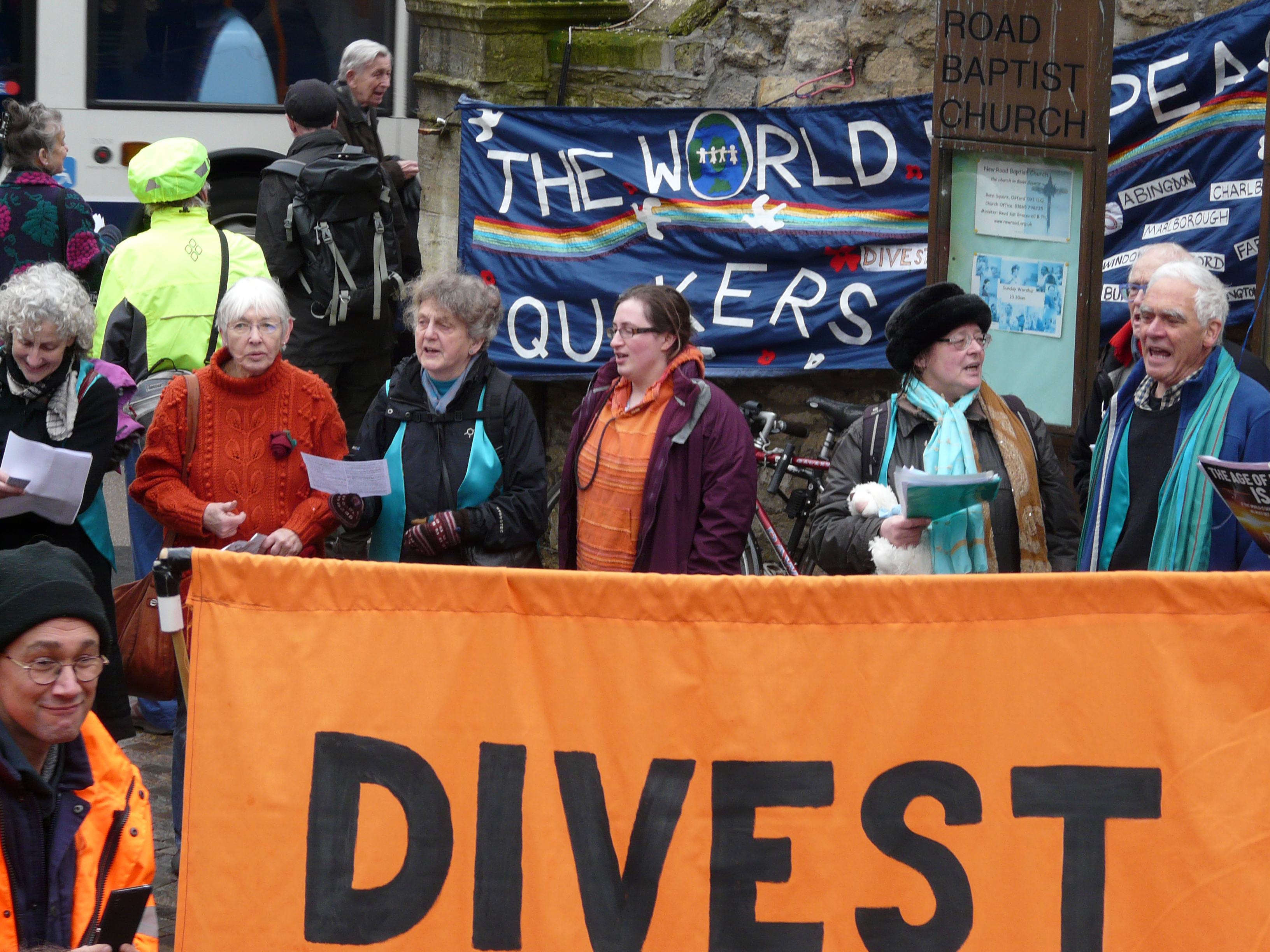Ban on ethical choice undemocratic
Government plans to ban local councils from making ethical choices in their pension investments and procurements are undemocratic, say Quakers in Britain.
Minister for the Cabinet Office, Matthew Hancock, is currently visiting Israel. During his visit, he is expected to announce full details of changes to the procurement guidance for all publicly funded institutions, including local councils and universities.

A Conservative Party press release in October stated that councils would be banned from passing policies to divest from or refuse contracts with arms companies, Israeli companies, or companies connected to illegal Israeli settlements in occupied Palestine.
[QUOTE-START]
Organisations should be free to spend and invest money in an ethical way that reflects the views of their members
- Paul Parker, recording clerk
[QUOTE-END]
Quakers say the government proposals are “an unprecedented intervention in the right, as well as duty, of local councils to take decisions that reflect the views and opinions of local communities."
Ethical divestment brings change
Responding to a government consultation on changes to the pension investment rules for local councils, the faith body said, “As Quakers, we believe the choices we make about our money are underpinned by our values and can make a practical difference to the type of world we live in. We believe strongly in the power of legitimate, nonviolent and democratic tools such as divestment to realise positive change in our world."
Quakers campaign to divest from unethical trades
- Quakers in Britain was the first church denomination in the UK to divest from fossil fuels.
- In 2011 Quakers committed to ending trade with settlements in occupied Palestine.
- Quakers campaign to end the arms trade.
In their submission to the consultation, Quakers in Britain outlined their serious concerns about the impact of the proposals on UK compliance with international law. Quakers wrote, “As a permanent member of the UN Security Council, the UK has a particular responsibility to support and uphold international law and human rights, including through supporting the actions of government bodies, agencies and councils to promote its adherence".
The UK Government has previously stated that Israeli settlements in occupied Palestine are illegal under international law. Quakers in Britain say that any move to include settlement trade in changes to the rules on council investments and procurement would not only be incompatible with international law, but also with the government's own policy and advice. The changes would call into question the government's current position on the illegality of the settlements. Any change in position would send an extremely worrying and divisive signal internationally.